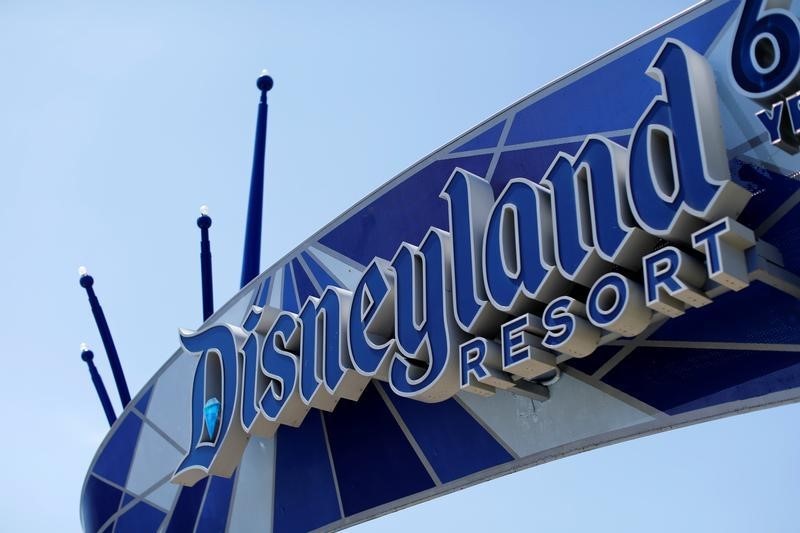© Reuters. SAG-AFTRA union President Fran Drescher, Duncan Crabtree-Ireland, SAG-AFTRA National Executive Director and Chief Negotiator, and union members gesture at SAG-AFTRA offices after negotiations ended with the Alliance of Motion Picture and Television Produc
2/3
By Lisa Richwine and Dawn Chmielewski
LOS ANGELES (Reuters) -Striking Hollywood actors were due to join film and television writers on picket lines on Friday, the first day of a dual work stoppage that has forced U.S. productions to shutter as workers battle over pay in the streaming TV era.
The twin strikes will add to the economic damage from the writers walkout that started on May 2, delivering another blow to the multi-billion-dollar industry as it struggles with changes to its business. Hollywood has not faced two simultaneous strikes since 1960.
Both SAG-AFTRA – Hollywood’s largest union, representing 160,000 film and television actors – and the Writers Guild of America (WGA) are demanding increases in base pay and residuals, or fees paid from streaming television, plus assurances that their work will not be replaced by artificial intelligence (AI).
The actors’ union said on Thursday its board had unanimously agreed to a strike after failing to reach a deal with studios, including Walt Disney (NYSE:) Co and Netflix Inc (NASDAQ:). Officials said actors would join picket lines in New York and Los Angeles starting on Friday.
The WGA’s work stoppage has rippled through California and beyond, hitting caterers, prop suppliers and others who rely on Hollywood productions for business. The economic damage is expected to spread after actors join the picket lines.
Fran Drescher, former star of “The Nanny” TV show and the president of SAG-AFTRA, called the studios’ responses to actors’ concerns “insulting and disrespectful.”
“We are the victims here,” Drescher told a news conference on Thursday. “We are being victimized by a very greedy entity.”
RERUNS, DISRUPTIONS
The Alliance of Motion Picture and Television Producers (AMPTP), the group that negotiates on behalf of studios, said it had offered significant gains to union members. They included the highest percentage increase in minimum pay levels in 35 years and “groundbreaking” protections around the use of actors’ images by generative AI, the organization said.
“Rather than continuing to negotiate, SAG-AFTRA has put us on a course that will deepen the financial hardship for thousands who depend on the industry for their livelihoods,” the AMPTP said.
The strike by roughly 11,500 writers has sent late-night television talk shows into endless reruns, disrupted most production for the autumn TV season and halted work on big-budget movies.
The actors’ walkout will shut down the studios’ remaining U.S.-based productions of film and scripted television and hamper many overseas shoots.
Many streaming services have yet to turn a profit after companies spent billions of dollars on programming to try and attract customers.
Britain’s main entertainment industry union Equity said it backed its U.S. counterpart and would be bringing up many of the same issues in its own contract negotiations over the next 12 months.
The Hollywood action would have a growing impact on the global industry, including in Britain if locals were working on projects with people on SAG-AFTRA contracts, Equity General Secretary Paul Fleming told Reuters.
“The longer it goes on, the bigger the impact,” he added.
Read the full article here




